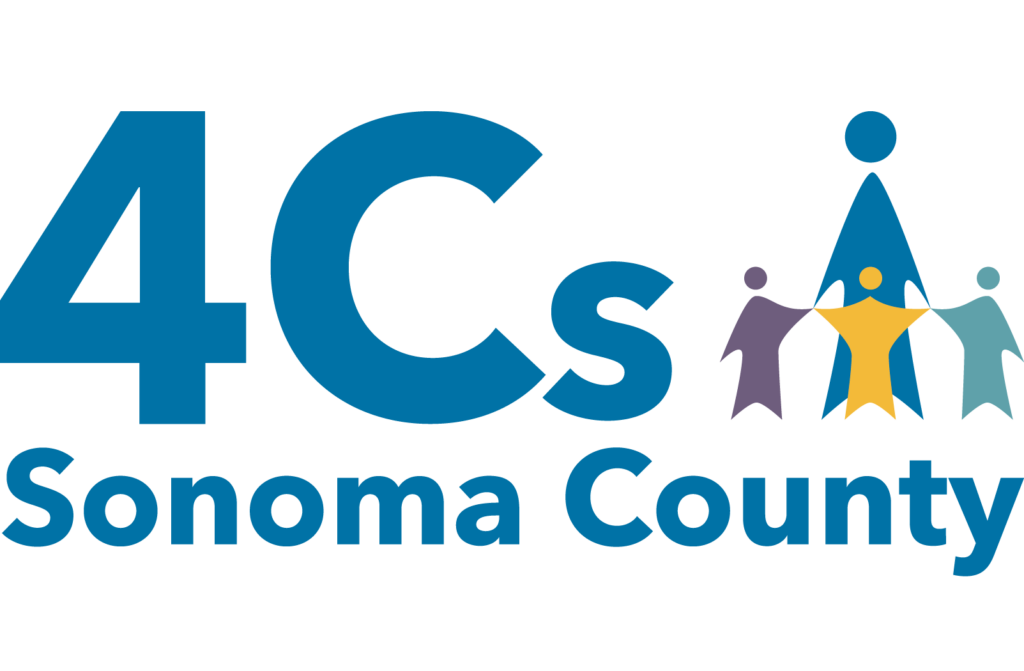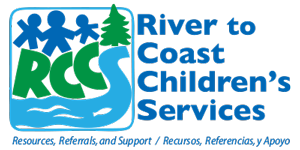
Wild Tenders AFTERSCHOOL PROGRAM
2024/25
youth program participant // photo by Dave Hage
The second year of our Wild Tenders Afterschool program is starting up in September 2024. The goal of this afterschool program is to make Wild Tenders available on Thursday afternoons (early dismissal days) to children who are attending local elementary and middle schools. Program days will be at RAGLE PARK!
At Wild Tenders, the local ecosystem is the classroom — the woods, creeks, meadows, hills, plants, and animals come magically alive through exploration, interaction, story, and consistent contact through the seasons. This direct experience and meaningful play help our students to know themselves as interdependent, ecological beings.
As with all of our programs, Wild Tenders is simultaneously committed to education that cultivates earth intimacy and that interrupts the socialization of dominant, oppressive systems that have caused so many social, ecological, and existential crises that we face today. We do this work in service to our vision of a world deeply rooted in interrelationship, respect for life, and shared protection of the planet upon which we all depend.
TABLE OF CONTENTS
I. OUR APPROACH TO EDUCATION
We organize our curriculum into four interrelated pillars. While we present these pillars as distinct, we want to emphasize that they are fluid and always interconnected in practice. That fluidity is symbolized by the wave.
Before applying, please read below about how each pillar relates to our youth programs. We present this information so you can decide if our approach aligns with your family’s vision and values. If you have any questions, please email us at youthprograms@weavingearth.org.
For an additional overview of our curriculum, please take a look at our Core Curriculum page.
EARTH INTIMACY
CO-LIBERATION
EMBODIMENT
prayerful action
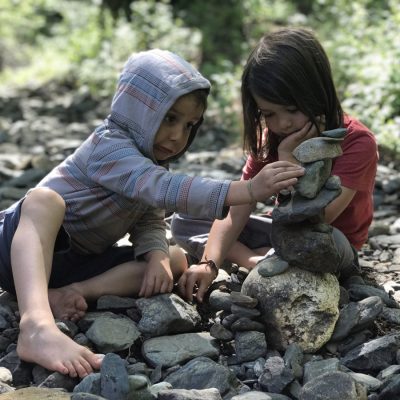
WHY EARTH INTIMACY FOR KIDS?
“Knowing that you love the earth changes you, activates you to defend and protect and celebrate. But when you feel that the earth loves you in return, that feeling transforms the relationship from a one-way street into a sacred bond.”
(Robin Wall Kimmerer)
(Robin Wall Kimmerer)
Why Earth Intimacy for Kids?
In stark contrast to Robin Wall Kimmerer’s beautiful words, James Watt — inventor of the steam engine — said: “Nature can be conquered; if we can but find her weak side.” This dangerous idea that humans are separate from and superior to “nature” shape systems, structures, and messages that influence our lives in countless ways. But we are nature, no better or worse than the other beings around us, only different. We believe our future depends on understanding and embodying our interdependent place in the ecological web.
Earth Intimacy is simply the process of nurturing our relationships with the environments we inhabit, loving them, and coming to understand that we are a part of the web of life, not apart from it.
The younger we cultivate that embodied understanding, the more likely it will influence values and actions throughout one’s lifetime. And so, we believe that nurturing Earth Intimacy in kids is vital.
Sadly, research shows that children in the U.S. spend an average of 4 to 7 minutes in unstructured outdoor play compared to 7 hours in front of screens. You read that right: 7 minutes of green time, 7 hours of screen time.
There is so much room for improvement, and we believe wholeheartedly that it’s possible — especially because the benefits of “green” time are so clear. Research confirms that time outside promotes physical and mental health, and that’s true for humans of any age. As we prioritize Earth Intimacy in the youngest generation, relationships founded in connection, love and kinship can guide lifelong actions for protection and care.
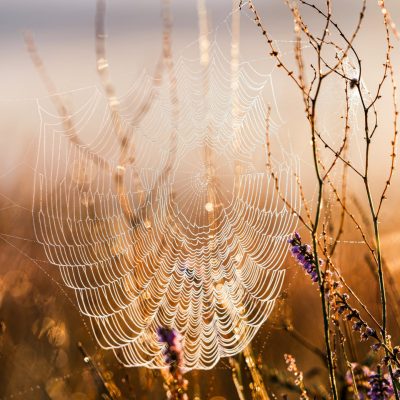
WHY CO-LIBERATION WITH KIDS?
“Nobody’s free until everybody’s free.”
(Fannie Lou Hamer)
Why Co-Liberation With Kids?
Fannie Lou Hamer’s words illuminate the interdependence of all peoples and all struggles for freedom. The sentence is simple, but the reality it describes is truly profound. Freedom is dynamic, individual, and collective, and it requires everyone’s active participation to achieve and maintain. Inspired by Hamer and so many visionaries, we use the term “co-liberation” to refer to the efforts that move us closer to freedom for all, including the Earth itself.
Co-liberation implies that we have work and practice to do together — and we most certainly do! But it’s also essential to recognize that the work is different depending on who we are… and more specifically, how protected and prioritized we are within the society we live in.
How does this relate to childhood education? Well, the truth is that we begin to learn the rules of society from a very young age. The fancy word for this is “socialization.” With each passing year, socialization becomes harder to undo — imagine you’re a salmon swimming upstream, and each year the current becomes stronger. The earlier we can start the process, the less there is to unlearn.
We believe that a better society — one in which all people are free to be themselves without retribution — depends on educating youth about these topics from the get go. With care and age-appropriate curriculum, we can lay foundations that support critical thinking, honest conversations and behaviour change, which we hope will add up to stopping the inheritance of injustice from being passed down any further.
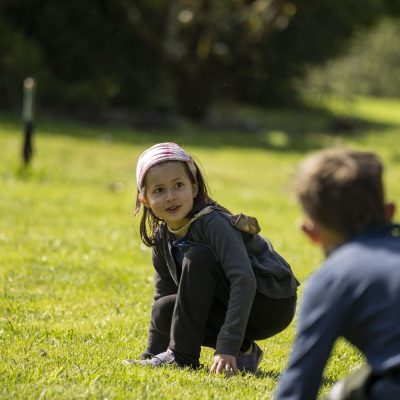
WHY EMBODIMENT WITH KIDS?
“Our bodies are the earth in human form.”
(tayla shanaye)
Why Embodiment With Kids?
Our bodies undergo remarkable changes as we mature from infancy to adolescence, and these changes are deeply supported by our intimacy with the Earth. After all, as a species, we evolved in intimate contact with our environments: the sunlight, the winds and breezes, the uneven ground… everything that makes up the ecosystem — always living, always changing. We are ecological beings and the outdoors is an ideal playground to cultivate (and celebrate) our senses — taste, touch, smell, hearing, sight, proprioception, and intuition.
Embodiment at Wild Tenders has two dimensions:
1. We support youth to grow more fully into their physical, emotional, sensory and relational selves.
2. We teach tools for self-regulation, which support emotional and relational wellbeing.
As we explore, play, crawl, balance, listen, observe, and reflect, we are attuning our whole individual systems to the whole collective system we are a part of. With guidance, practice, and time, this exploration teaches us to notice more acutely what is happening in our bodies, and how those happenings are impacting and being impacted by what is going on around us. This sensitivity is a crucial skill for navigating the world, both physically and emotionally, and it supports an embodied sense of ourselves as interdependent, ecological beings.
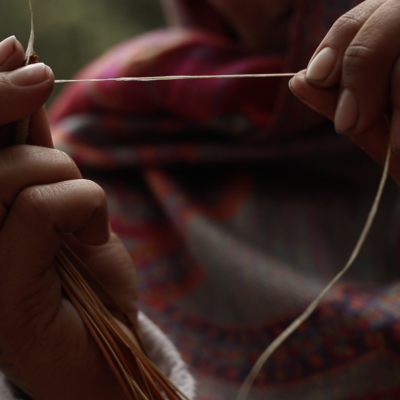
WHY prayErful action with KIDS?
“To love a place is not enough. We must find ways to heal it.”
(Robin Wall Kimmerer)
Why Prayerful Action With Kids?
We want young people to feel informed, inspired and resourced to contribute to the world around them. Prayerful action is how we refer to contributions that heal, that nurture life, that inspire, that promote freedom. It is a type of leadership that is considerate of the health and well-being of many generations to come.
Leadership is a complicated word. Our vision of leadership is not rooted in a single expert or a charismatic person who guides everyone else. Rather, leadership is collaborative. It is a balance between knowing one’s gifts and feeling confident to offer them, and at the same time, celebrating the gifts of others and co-creating containers that support the expression and celebration of each other’s gifts. It is equally important to understand our limitations and the places where we might grow. We make great effort in Wild Tenders to support the youth to see the gifts in themselves and others, to develop confidence in them, and also to believe that they can cultivate new gifts, skills, and awareness with time and practice (and guidance).
Service to the world can take so many different forms. After all, the Earth and the Earth’s inhabitants are ailing (and thriving) in so many ways — we want to support the thriving! Childhood can be a time of innocence, but not every child is fortunate enough to experience that luxury — and kids are often far more observant than we give them credit for … which is precisely why we need to talk to kids about what ails the world, particularly as they get older. To shield them from such realities is to hinder their capacity to respond — and perhaps their willingness. We believe that youth who are embodied, aware of the world’s ailments and wellness, and supported by an intimate relationship with the Earth will be well prepared for finding what prayerful actions are theirs to make in service to the whole.
II. PROGRAM OVERVIEW
Below, you’ll find information on weekly schedule, location, annual schedule, and tuition. Any questions? Contact youthprograms@weavingearth.org for assistance.
1. AGE GROUPS
For ages 6-14. There are two cohorts for the Wild Tenders Afterschool Program — The Hummingbirds and The Hawks. Each cohort needs a minimum of 3 kids to run.
THE HUMMINGBIRDS
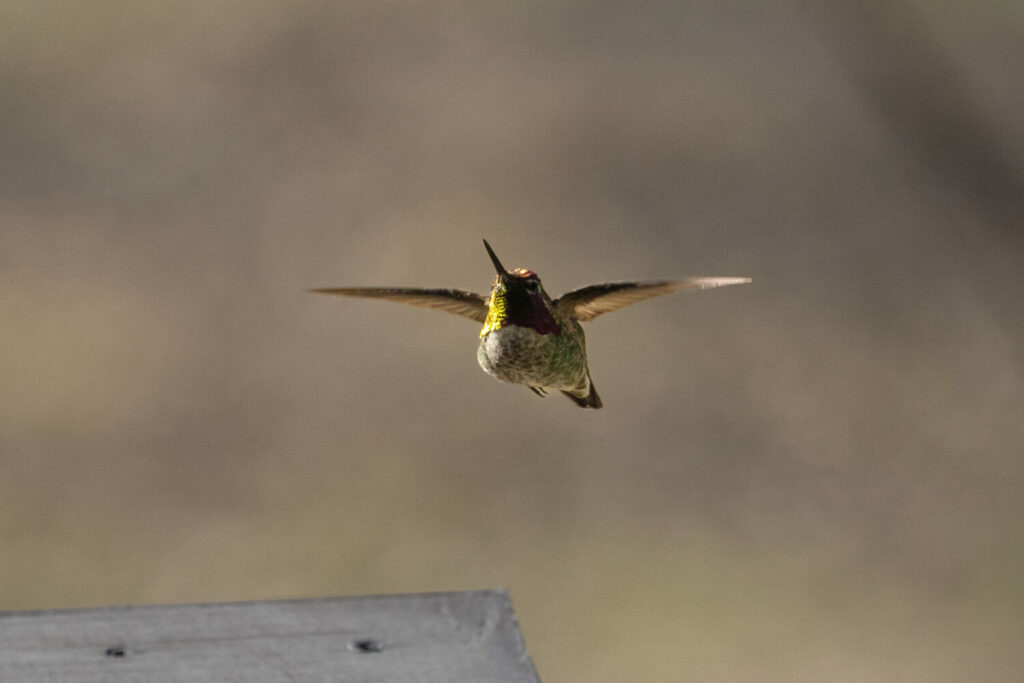
6-8 YEAR OLDS
THE HAWKS
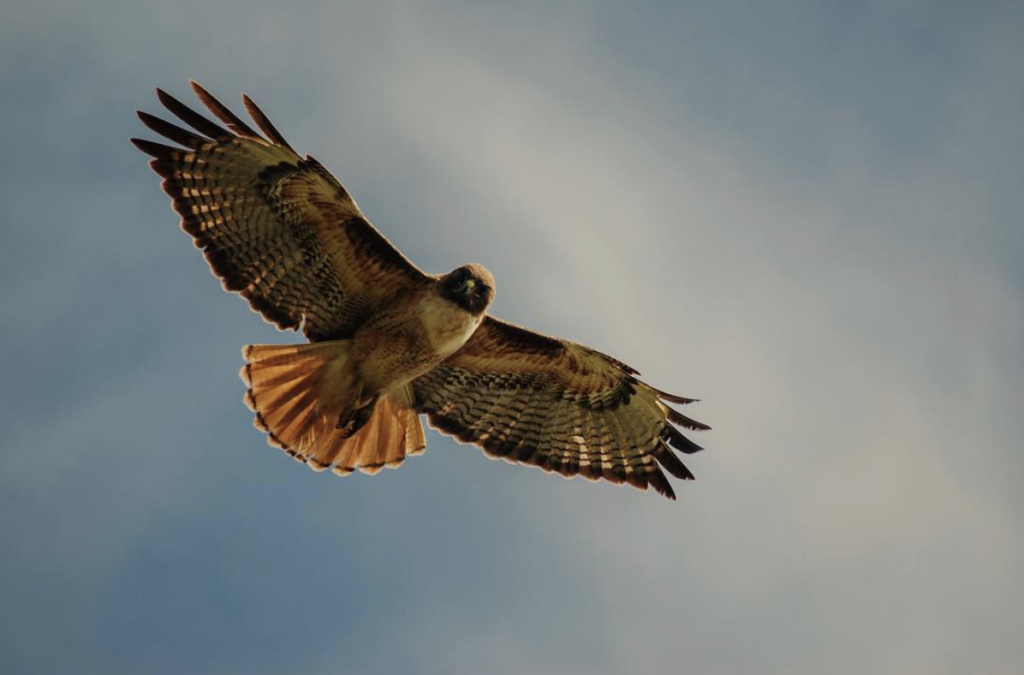
9-14 YEAR OLDS
2. WEEKLY SCHEDULE
Registration for our Thursday Afterschool Program is open. The program runs from 1-5pm. Note that during the month of December, pickup will be at 4:30 due to the shorter daylight hours.
MONDAY
TUESDAY
WEDNESDAY
THURSDAY
FRIDAY
-
-
-
1 PM - 5 PM
-
THURSDAY
1 PM - 5 PM
3. LOCATION
Ragle Ranch Regional Park.
4. ANNUAL SCHEDULE
To see a detailed calendar showing all of the days we are in session for the 2024-25 year, click the icon below to view a spreadsheet of dates, or click here. We are offering our afterschool programs in two semesters. You can sign up for the first half of the year, the second half of the year, or both! See pricing per semester below.
III. TUITION
1. PRICING
The Wild Tenders Afterschool Program is priced on a sliding scale.
ToTAL TUITION
SEMESTER A
13 program days
$925* to $1100
EARLY BIRD SPECIAL, APPLY BY AUGUST 7th:
$740* to $880
ToTAL TUITION
SEMESTER B
18 program days
$1275* to $1525
EARLY BIRD SPECIAL, APPLY BY AUGUST 7th:
$1020* to $1220
ToTAL TUITION
BOTH SEMESTERS
$2200* to $2625
EARLY BIRD SPECIAL, APPLY BY AUGUST 7th:
$1760* to $2100
Refund policies are outlined in the Financial Agreement you receive upon acceptance into the program.
HOW SHOULD I USE THE SLIDING SCALE?
If you are financially comfortable and/or have access to inherited wealth, family support, or other sources of financial stability, we encourage you to pay on the higher end of the sliding scale.
Similarly, if you inhabit multiple systematically privileged identities (e.g. white, heterosexual, cisgender, able-bodied, U.S. citizen, et cetera), we encourage you to pay on the higher end of the sliding scale.
Ultimately, with these considerations in mind, we trust and support you to choose the tuition that works for you and your family.
If you are able to pay beyond the sliding scale, any additional money will be treated as a tax-deductible donation and will automatically be put into our Financial Assistance Funds (see below).
WHAT IF I CAN'T AFFORD THE SLIDING SCALE?
We recognize the sliding scale may be or feel cost-prohibitive for some families. Moreover, we are committed to pricing our programs in ways that take into account structural barriers and systemic discrimination, past and present, to the best of our abilities. Please read the following section to learn more about three approaches we are using beyond the sliding scale to make Wild Tenders financially accessible to as many families as possible. If you have any questions about tuition and finances, please reach out to us at youthprograms@weavingearth.org.
2. FINANCIAL ACCESSIBILITY BEYOND THE SLIDING SCALE
I. SUPPORT FROM LOCAL NONPROFITS
In the past, participants have accessed need-based financial support from The Community Child Care Council (4Cs) and River to Coast Children’s Services. We strongly encourage applicants who need financial assistance to contact these organizations for more information on how to enroll.
II. PAYMENT PLANS
Additionally, we offer flexible payment plan schedules. We will ask you to specify in your application what your financial plans/needs are for the Wild Tenders Afterschool Program, but please note that you will not be asked to sign an official financial agreement until after you have been accepted. For now, we want you to have this information for your planning purposes.
OPTION 1 — ONE-TIME PAYMENT
Some families choose to make a one-time full payment before the start of the year.
OPTION 2 — PAYMENT PLAN
Many families elect to pay their tuition in installments. This option is available to anyone, including families who are receiving scholarship funds. We offer two Payment Plans: you can pay MONTHLY or with a THREE INSTALLMENT payment plan. Payment date details will be outlined in your financial agreement upon acceptance into the program.
Please note: If you plan to pay by check, we ask that you send us all of your payments as postdated checks before the start of the year. There is also the option to pay by direct ACH transfers.
III. GENERAL SCHOLARSHIP FUND
We have some scholarship funds available and we prioritize supporting indigenous families, black families, and other families of color, as well participants from other marginalized groups, single working parents, parents between jobs, parents with disabilities, et cetera. If financial assistance beyond the sliding scale would be supportive for you in joining this program, you can indicate that in your application. Once we have a sense of the overall need, we will do our best to accommodate everyone’s requests.
IV. APPLICATION
NOTE: If you are applying for the daylong Wild Tenders program, you DO NOT need to fill out this application. Please email us and we will take care of the rest.
APPLICATION PERIODS FOR AFTERSCHOOL THURSDAY
PHASE 1
APPLY BEFORE MONDAY, MAY 30th 2022
HEAR AN UPDATE ON MONDAY, JUNE 6th 2022
If you submit an application before Monday, May 30th, we will consider your application as part of our first round of acceptance decisions. Submitting an application does not guarantee that you will be accepted in this first round. We will notify you of a decision on Monday, June 6th. If you are accepted, you will have two weeks (until Monday, June 20th) to complete all of your registration paperwork and make a deposit to secure your spot.
PHASE 2
APPLY BETWEEN MONDAY, MAY 30th and MONDAY, JUNE 13th 2022
HEAR AN UPDATE ON MONDAY, JUNE 20th 2022
If you submit an application between Monday, May 30th and Monday, June 13th, you will automatically be placed on our Waiting List and we will consider your application as part of our second round of acceptance decisions if there is space. We will notify you of your updated status on Monday, June 20th. If you are accepted, you will have two weeks (until Tuesday, July 5th) to complete all of your registration paperwork and make a deposit to secure your spot.
PHASE 3
APPLY AFTER MONDAY, JUNE 13th
HEAR AN UPDATE WITHIN TWO WEEKS
If you submit an application after Monday, June 13th, you will automatically be placed on our Waiting List and we will consider your application as part of our third round of acceptance decisions. We will notify you of your updated status within two weeks of receiving your application.


